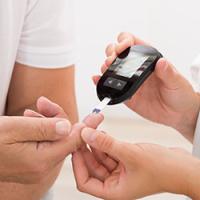
Diabetes is a disease in which the body doesn’t properly process food for use as energy. The food we eat is turned into sugar (glucose) to be used as energy. The pancreas makes insulin, a hormone that helps glucose properly get into the cells for energy. According to the Centers for Disease Control (CDC) “… when you have diabetes, your body either doesn’t make enough insulin or can’t use its own as well as it should.”
Diabetes Overview
There are four types of diabetes: type 1, type 2, gestational diabetes, and prediabetes.
- Type 1 diabetes is insulin dependent. This means it is a chronic condition in which the pancreas either doesn’t produce insulin, or produces too little. Type 1 diabetes often appears during childhood or adolescence, but can appear in adults. Type 1 is managed with medication.
- Type 2 diabetes occurs when the body becomes resistant to insulin or when the pancreas stops producing enough insulin. Genetic factors can play a role, but being overweight or inactive can also be causes. Type 2 diabetes can be managed with medication and in some cases, diet and exercise can reverse it.
- Gestational diabetes occurs in some pregnant women most commonly during the last three months of gestation. It doesn’t cause noticeable signs or symptoms, and subsides after childbirth. Women who develop gestational diabetes are at higher risk for developing Type 2 diabetes.
- Prediabetes is a condition where your blood sugar is higher than normal levels, but not high enough to be diagnosed as diabetic. With healthy lifestyle changes, adults and children with prediabetes can lower their blood sugar and risk of developing type 2.
Diabetes Education
The Greater Roslindale Medical and Dental Center has a diabetes educator, Donald Woodbury, RN, CDCES, who works with our practitioners and patients with diabetes.
“Diabetes is a complex disease that requires daily self-management. Diabetes educators are healthcare professionals who focus on helping people with and at risk for diabetes achieve behavior change goals. The diabetes educator is a key member of the diabetes management team, will help you learn to take care of yourself by developing a plan that helps you overcome the barriers in managing diabetes-some examples:
- Help you understand what diabetes is and how it affects your body
- Explain how diabetes medications work, and how and when to take them correctly
- How to plan meals that fit your life and budget
- Determine the best type of glucose monitor for you
- Offer tips how to help cope with stress and solve problems as they arise.”
Diabetes Symptoms
Diabetes symptoms can vary from person to person, but common symptoms include:
- Increased thirst
- Extreme hunger
- Unexplained weight loss
- Fatigue
- Frequent urination
- Irritability
If you are concerned about any new or sudden medical changes, please contact us to make an appointment with your practitioner.
Diabetes Risks
As with symptoms, personal risk depends on a variety of factors some of which are out of your control, such as family history, race, and age. However, there are factors that put you at risk that you can control, such as diet, exercise, and weight.
Diabetes is a condition that can be life changing, but one that, if controlled can be managed. At Greater Roslindale Medical and Dental Center we are here to help you with any questions or concerns you might have about diabetes, how to manage your risks, and how to live a healthy lifestyle.
